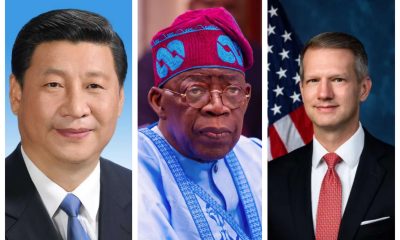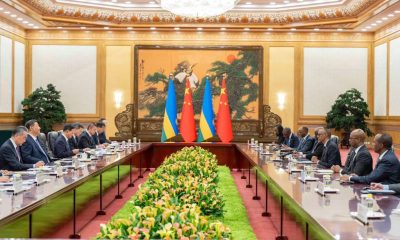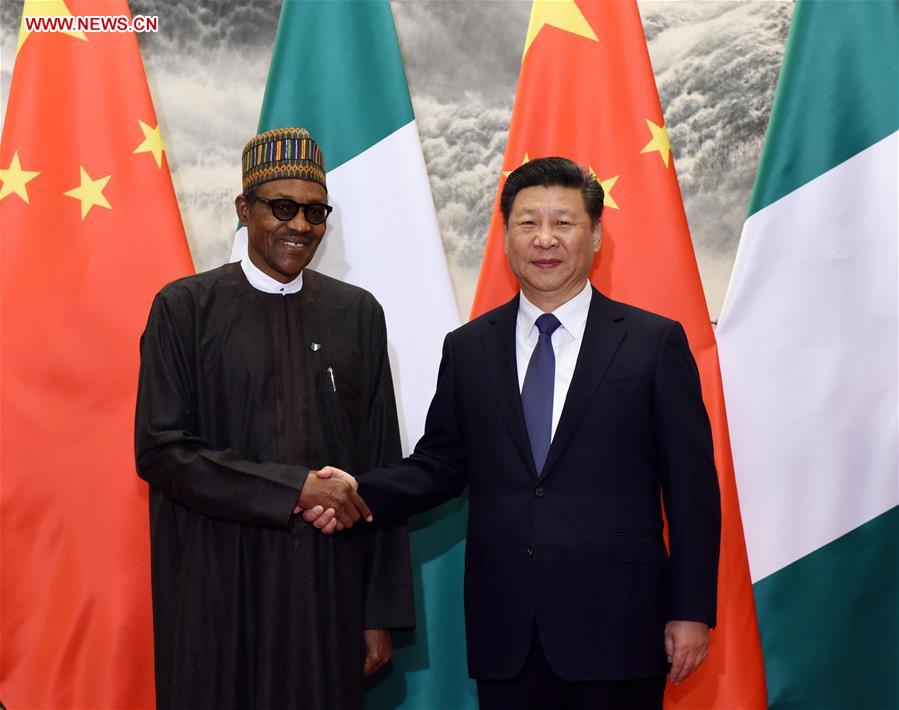Politics
“One-Sided Disaster”: Trump Slams India as China pushes to reshape global order at SCO Summit 2025

The 2025 Shanghai Cooperation Organization (SCO) summit in Tianjin concluded on September 1 with strong signals that Beijing is intensifying efforts to reshape the global order, as leaders from more than 20 non-Western nations gathered to promote closer economic and security ties.
But while Chinese President Xi Jinping called for a “more just and balanced international governance framework,” the summit drew sharp criticism from U.S. President Donald Trump, who accused India of exploiting the United States in trade relations.
In a fiery post on Truth Social Monday, Trump branded U.S.-India trade a “totally one-sided disaster!”, doubling down on his administration’s protectionist stance amid escalating tariff wars.
Trump claimed that India had previously offered to cut tariffs to zero but suggested the offer came “too late.” Without specifying when such a proposal was made, he insisted New Delhi should have acted “years ago.”
“The reason is that India has charged us, until now, such high tariffs, the most of any country, that our businesses are unable to sell into India. It has been a totally one-sided disaster!” Trump wrote.
The comments come after Washington slapped 50% tariffs on Indian goods, including secondary duties of 25% last month over New Delhi’s purchases of Russian oil – a move India has denounced as “unfair, unjustified, and unreasonable.”
Trump also accused India of buying arms and energy from Russia while enjoying privileged access to the U.S. market, pointing out that New Delhi “sells massive amounts of goods” to the United States but maintains high tariffs on American exports.
According to the World Trade Organization, India’s average applied tariff on U.S. imports stood at 6.2% in 2024, compared to Washington’s 2.4% tariff on Indian goods, on a trade-weighted basis.
The sharp escalation in trade tensions has strained U.S.-India relations, undermining decades of closer economic and strategic cooperation. The fallout comes against the backdrop of Trump’s 2025 tariff campaign, which has roiled global markets and intensified friction with allies and rivals alike.
India, for its part, has pushed back, accusing Western nations of hypocrisy. “It is revealing that the very nations criticizing India are themselves indulging in trade with Russia. Unlike our case, such trade is not even a vital national compulsion [for them],” India’s foreign ministry said last month.
Modi-Xi Meeting Dominates SCO Summit
At the heart of the SCO summit was a high-profile meeting between Indian Prime Minister Narendra Modi and Chinese President Xi Jinping, their first encounter on Chinese soil in seven years.
The two leaders, representing 2.8 billion people combined, pledged to pursue cooperation and resolve lingering border disputes, signaling a thaw in relations amid mounting economic pressures.
While the optics suggested rapprochement, analysts caution that deep-rooted mistrust persists, particularly over territorial disputes and China’s close ties with Pakistan. India also fears a surge of cheap Chinese imports threatening its domestic manufacturing base.
Xi, Putin, Modi Project United Front
A defining image from the summit showed Xi, Modi, and Russian President Vladimir Putin holding hands and laughing on the sidelines, a symbolic gesture aimed at countering Western narratives.
The SCO platform allowed Putin to sidestep isolation imposed by Western sanctions and demonstrate that Russia retains influential allies in Asia.
Trump’s tariff offensive, ironically, has given China an opportunity to cast itself as a dependable partner compared to Washington’s unpredictable trade posture.
China Pushes Multipolar Agenda
In his opening remarks, Xi warned that the world had entered “a new phase of turbulence” and decried lingering Cold War mentality and bullying, in a clear swipe at Washington’s trade and security policies.
He called for joint efforts to build a more balanced global governance structure, positioning the SCO as a pillar of multipolarity in contrast to U.S.-led alliances.
Beijing’s agenda included three major initiatives:
AI Cooperation Roadmap – The Tianjin Declaration endorsed a plan for collaborative development of artificial intelligence, emphasizing security, accountability, and equitable access. China proposed an AI application center for SCO members and promoted open-source AI models as productivity infrastructure.
SCO Development Bank – Member states advanced plans for a development bank to reduce reliance on the U.S. dollar, echoing China’s role in creating the Asian Infrastructure Investment Bank (AIIB) in 2014. Beijing pledged ¥2 billion ($280M) in aid and ¥10 billion ($1.4B) in loans over three years.
Strategic Partnerships – Beyond AI and finance, the summit focused on energy security, trade connectivity, and counterterrorism, strengthening China’s image as an alternative leader in global governance.
U.S. Downplays SCO Impact
U.S. Treasury Secretary Scott Bessent dismissed the SCO summit as “performative,” arguing that tariffs were not driving China and India closer together. But analysts say Washington is losing ground in the narrative war.









